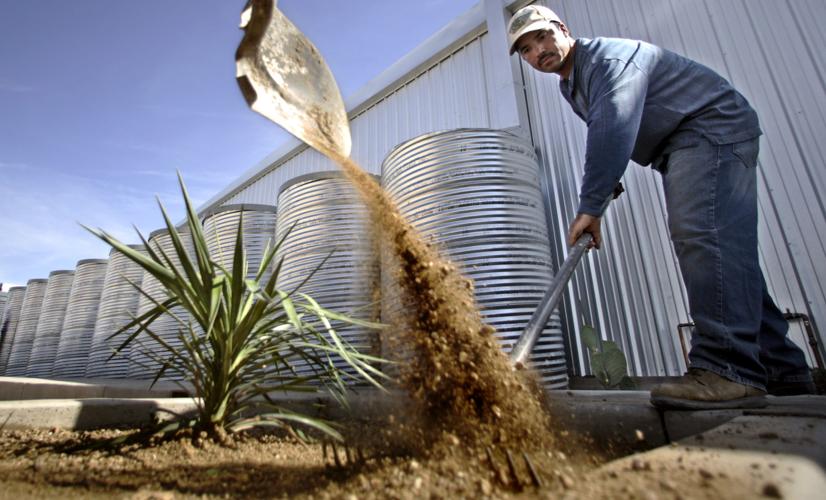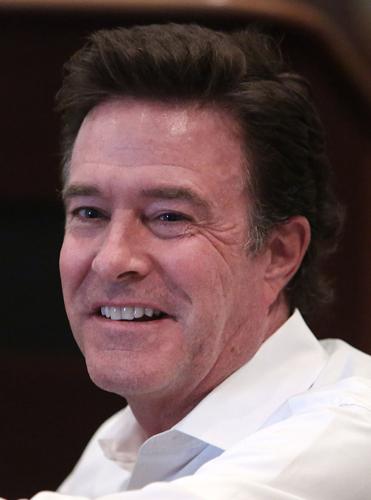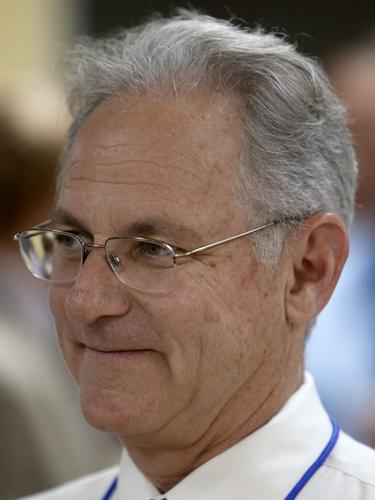A greened-up proposal for Tucson to foot the tab for water lines to new employers has heightened support for the package from previously skeptical City Council members.
On Wednesday, the council will consider a water infrastructure incentive package for the second time in six months. Like the earlier package, it would be a major departure from customary city policies requiring that growth pay for itself.
Under the proposal, the city would pay up to $2.5 million a year to build water pipelines and other projects helping out new, non-retail employers.
The incentives would go only to developers who build projects in areas that city government has targeted for future industrial, office and warehouse development. The areas where new development would be eligible for incentives are mostly on the far south and southeast sides, generally near existing residential and commercial areas that are considered economically stressed.
Today the city typically requires both residential and business developers to pay for the water line extensions in the name of avoiding what many critics see as a subsidy for growth. But the new proposal comes amid criticism from some business groups and political conservatives that the City Council isn’t being friendly enough to development.
A similar proposal was delayed by the council six months ago after several council members complained it lacked teeth to force new employers to conserve water or energy or take other steps toward environmental sustainability.
While the earlier proposal would have given developers incentive bonuses for environmentally sound practices, the new package makes such practices mandatory. The new employers would have to commit to three of six possible “green” measures to qualify for incentives.
They involve such generally popular conservation practices as meeting LEED certification for green building, rainwater harvesting, recycled water use, native tree planting and the creation of jobs benefiting the environment.
“The feedback we got from the council was that water conservation should not be a bonus. It should be a core part for the program,” said Tucson Water Director Tim Thomure.
Councilmen Paul Cunningham and Steve Kozachik, both skeptical of the earlier proposal, welcomed the changed plan.
“I think it’s a good balance, a way to promote smart water growth,” Cunningham said. “We were eventually going to serve these areas anyway. Now, we can jump-start economic activity as well as ensure that the economic activity is making the best choices for sustainability.”
Paul Durham, a newcomer to the council whose just-departed predecessor, Karin Uhlich, was wary of the earlier proposal, greeted the new program enthusiastically.
“What we are doing is encouraging both water and energy efficiency,” Durham said. “I think that’s going to make the buildings that receive the incentives models of efficiency, and I think that’s a good thing.”
But Councilwoman Regina Romero remains opposed to the incentives. She said they’ll take money from city infrastructure funds that should target other uses. She sees this program as subsidizing local businesses to install similar products that are commonly seen as green infrastructure.
“We’re taking infrastructure capital funds from Tucson Water to build corporations’ water lines,” Romero said. “And I feel it’s financially inequitable to the general public.”
Mayor Jonathan Rothschild and Thomure say they understand but don’t agree with Romero’s concerns.
“This is a way we can use our water policy to help increase the higher number of median-wage jobs in this community,” Rothschild said. “If we’re going to stimulate certain businesses, we want those businesses to be environmentally conscious.”
But Rothschild and Thomure are quick to say that they aren’t aware of any prospective employers ready to knock on Tucson’s door if these incentives are approved.
“There’s no prospect on the line for this. There’s nobody in the loop,” Rothschild said.
But Rothschild said he recently spent several days talking to five leading “site selectors,” people whose firms advise major employers on where to take their jobs — people who match businesses with communities to locate in. All five, while not commenting on possible incentives, told Rothschild that “‘one of your assets is that you have great land, but you’re short of ready-to-go buildings.’
“We’re not going to build the buildings for them. But it’s generally government’s role to play some role in infrastructure,” the mayor said.
Today, the city of Tucson offers 20 kinds of incentives or other programs seeking to encourage businesses to locate here. They range from outright tax breaks and fee waivers to fee deferrals and streamlining of rezoning requirements in certain kinds of cases.
Neighborhood-level water harvesting
One incentive provides up to eight years of property-tax breaks for businesses locating within the city’s Central Business District in and around downtown, if they meet certain conditions.
Another major program is the Primary Jobs Incentive, which offers construction-sales tax credits and building permit fee waivers to new businesses that create at least 25 jobs paying $52,400 or more a year and invest at least $5 million in new facilities or equipment.
Only companies qualifying for the Primary Jobs Incentive could also get the new water incentives, if they’re approved.
This large number of existing incentive programs is another reason Romero is so critical of the water infrastructure incentive proposal.
“I understand one of the concerns the mayor has is that Maricopa County cities are winning at getting jobs in the Phoenix area,” Romero said. “Well, we could easily have arguments for using this $2.5 million to invest in small locally owned businesses to invest in green infrastructure” such as water harvesting, she said.
“We could be investing in locally owned companies to help in local economic development ... while at the same time doing huge, neighborhood-level water harvesting projects that will beautify neighborhoods that otherwise flood every time we have rain,” Romero said.
The Community Water Coalition, a conservation-oriented, activist group, embraced Romero’s view in a letter to Rothschild and the council last week.
While the group provided Tucson Water staff with some ideas for green-oriented programs for developers to qualify for incentives, the letter added that the group also has concerns about whether it’s appropriate to reimburse developers for water infrastructure.
They say it’s preferable to invest in local businesses to address water scarcity, and that “we too have concerns about the appropriateness of using large-scale funds to address major national concerns.”
But Rob Glaser of the real estate brokerage firm Cushman & Wakefield/Picor, and Robert Medler of the Tucson Metro Chamber, both welcomed the new incentive proposal.
Glaser said this program could really help the city land new developers in outlying areas that don’t have much infrastructure today.
“There’s a significant development cost. If that could be deferred or alleviated entirely, it would help make it more viable,” Glaser said.
Medler, the chamber’s vice president for government affairs, called this proposal “a great step in the right direction, another tool in the toolbox to create jobs for a healthier economy in Tucson.”
But longtime Tucson realty executive Hank Amos was more skeptical that this proposal would do the city much good in getting new investment. He said he applauded the city’s effort to get new jobs but doesn’t think this proposal will have much impact if approved.
If the city pays for all the infrastructure needed to bring water to a new project, that would be one thing. But city officials say they’ll determine the percentage of infrastructure payments for each project case by case, and that not all beneficiaries will be covered 100 percent.
“Let’s say I am a real estate developer and I can build a building for a big company to lease from me and that big company wants to build a building,” said Amos, president and CEO of Tucson Realty and Trust. “Why would they go to a spot where they have to pay part of the cost for water development, when I can go to Marana and find land with infrastructure there already?”
Where the money
would come from
Responding to Amos, Rothschild acknowedged that Tucson lacks the sort of large, wide-open parcels for major industrial and office parks of the kind seen popping up around Phoenix and in parts of suburban Tucson. But “when people come into town to look at our property and say, ‘Dang it, I can go to Mesa and this area is already built out,’ we’re saying that we have a program for you, that we think can save you money, based on how many jobs you bring in.”
As for Romero’s concerns, Kozachik and Thomure argued that the incentive package won’t take much money away from other water utility projects. That’s because the city proposal also would take any construction sales tax revenue generated by such projects that go beyond what’s needed to pay off the incentives and put that money into a fund to pay for future small infrastructure.
“This is something that feeds on itself and sustains itself over time,” Kozachik said. “Going forward, the infrastructure fund builds itself up, based on construction incentives.”
And if none of the $2.5 million is spent on water incentives in a given year, it will revert to Tucson Water’s cash reserve balance, Thomure said. That fund is now forecast to be $36 million by the end of fiscal 2017-18, he said. In short, this infrastructure incentive money won’t be taken from any other Tucson Water program, he said.











